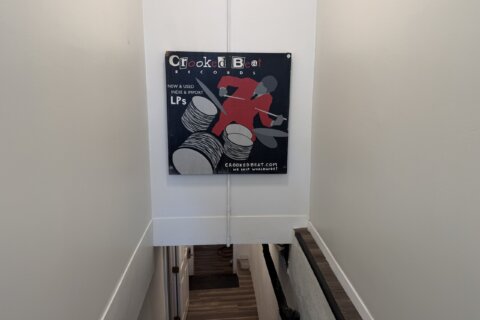A new lawsuit against the city of Alexandria, Virginia, claims the city’s stormwater runoff system is allowing coal tar and creosote wastes to contaminate the Potomac River in violation of the Clean Water Act and Resource Conservation Recovery Act.
The Potomac Riverkeeper Network filed the lawsuit earlier this month after conducting an investigation the group says determined the waste, which originates from a gas plant that closed 75 years ago, has been discharged into the Potomac since at least 1975.
Lawsuits’ allegations
The Potomac Riverkeeper Network is a nonprofit organization that aims to keep water in the Potomac clean from pollution.
The group is seeking a court order to make Alexandria stop “the continued discharge of coal tar and creosote wastes and to characterize and remediate the full extent of the contamination it created in the Potomac River,” according to a news release.
That waste was first reported in 1975, according to Alexandria.
“The City’s effort to eliminate these discharges has been too slow, too limited, and has failed to stop the imminent and substantial danger,” said Dean Naujoks, a Potomac Riverkeeper involved in the investigation.
The group says the waste is coming through a stormwater pipe, making it illegal under the Clean Water Act, as Alexandria doesn’t have a permit to dispose of the waste that way.
Naujoks said the pollution is visible when looking at the surface water and sediments.
The complaint says the disposal is contributing to “imminent and substantial endangerment to human health and the environment.”
Some of that waste is classified as probable human carcinogens, Phillip Musegaas, vice president for Programs and Litigation, said. And the area where it’s present is used for kayaking, paddling and fishing.
“Documents prepared on behalf of the City acknowledge that concentrations detected near the Outfall site are a potential danger to marine and aquatic organisms and the animals that feed on them,” Musegaas said.
The Potomac Riverkeeper group also said the actions are unlawful because the Resource Conservation Recovery Act gives the EPA power to control hazardous waste from its creation to disposal.
A spokeswoman for the city released a statement, saying it has worked with the Riverkeeper group and state authorities to remediate the contamination in the past.
A statement from the city read in part: “While the City of Alexandria generally does not comment on pending litigation, we are surprised by the Potomac RiverKeeper Network’s (PKRN) action. Alexandria has worked closely with both the Virginia Department of Environmental Quality (VDEQ) and the PRKN on the City’s efforts to remediate the remnants of contamination that occurred at this site.”
The statement also said the city entered into a voluntary remediation program overseen by the state in 2000 and is following the schedules set out there.
Where the waste is coming from
Pollution in the river has been on the city’s radar for decades, but even the city government admits the issues been tough to tackle.
“The City has taken numerous measures to prevent further discharges of plant-related wastes into the river. However, the extent and complexity of the problem has made the development of an effective and lasting solution a difficult challenge,” according to a city website on contaminated lands.
A manufactured gas plant near the corner of North Lee and Oronoco Streets operated from 1851 to 1946. It provided heat and light to area businesses and residents, but also emitted coal tar and creosote wastes into the soil and groundwater.
After the plant was demolished, the city redeveloped the site in the mid-1970s and installed a stormwater pipe. But — similar to other manufactured gas plants — contaminated runoff has infiltrated into the storm sewer and then gets deposited into the Potomac via the outfall.
Manufactured gas production leaves behind known carcinogens including polycyclic aromatic hydrocarbons, according to the Environmental Protection Agency. The Potomac Riverkeepers said that people can be exposed to coal tar or creosote by inhaling fumes, skin contact or by ingesting contaminated soil or water. That exposure can cause problems such as cancer, liver and kidney damage, stomach aches or skin damage.
Addressing the issue
Unlike remediating other industries, abandoned manufactured gas plants are unique because they tend to be found at sites near residential communities, according to an EPA report.
Alexandria has been working to get rid of the contamination since it was first reported in the 1970s.
Alexandria installed absorption booms around 1979, at the request of the Coast Guard, and also operates a floating containment boom. But the Potomac Riverkeepers say those measures are inadequate and not well maintained.
The most recent move to solve the issue was the installation of recovery wells along Oronoco Street between North Lee and North Union Streets last spring. The wells are meant to get the coal tar from beneath the street, according to the city.
The Virginia Department of Environmental Quality oversees the city’s programs to clean up the river. Alexandria posted an updated list online of what they’ve done so far and its future plans.







